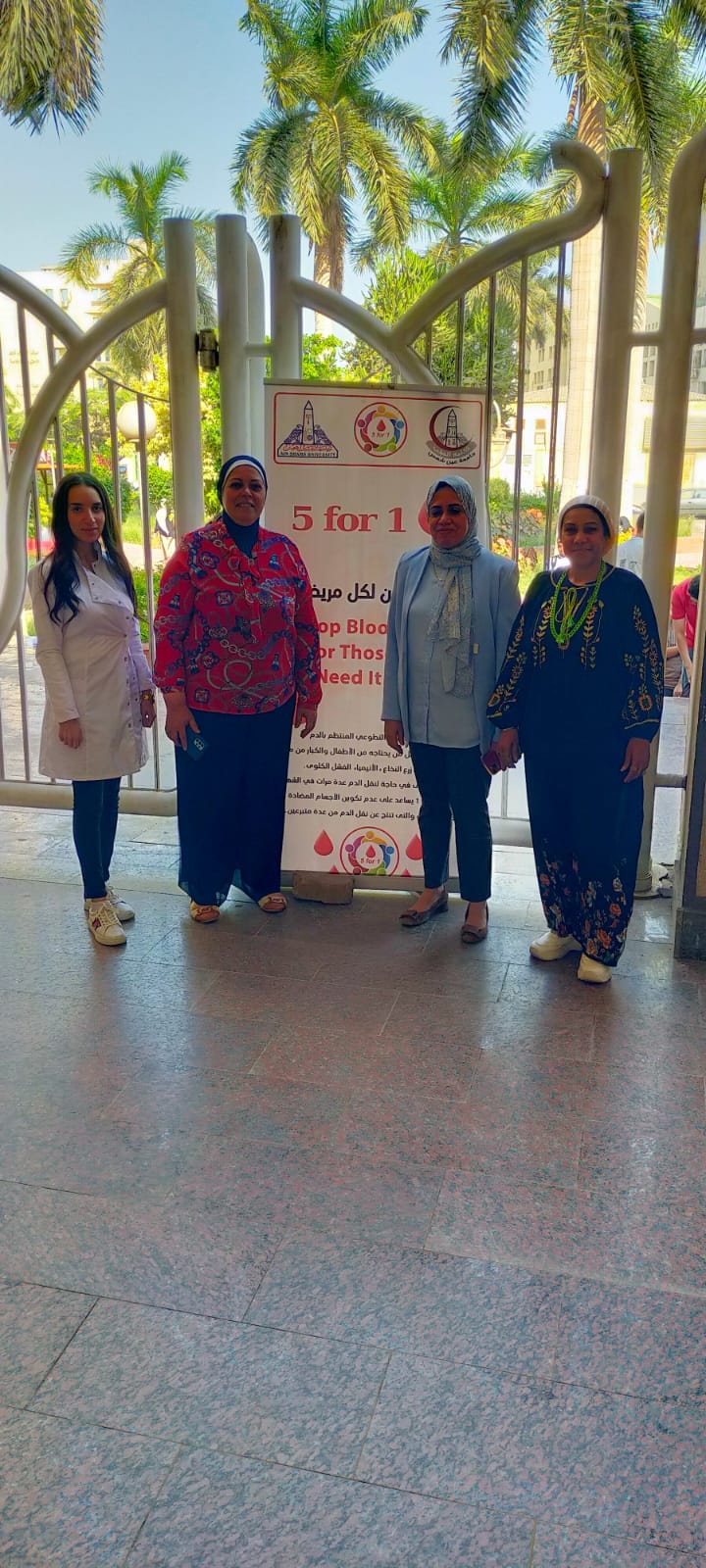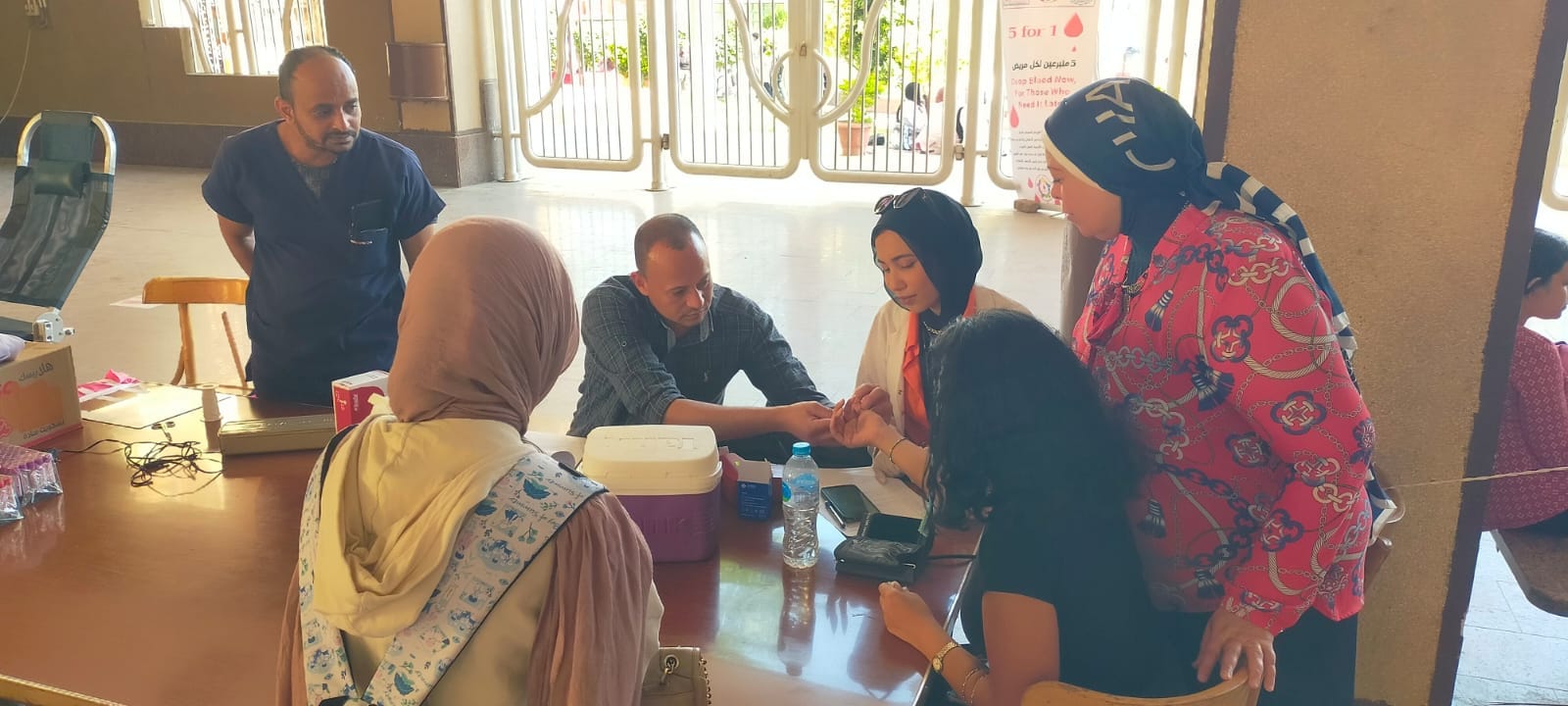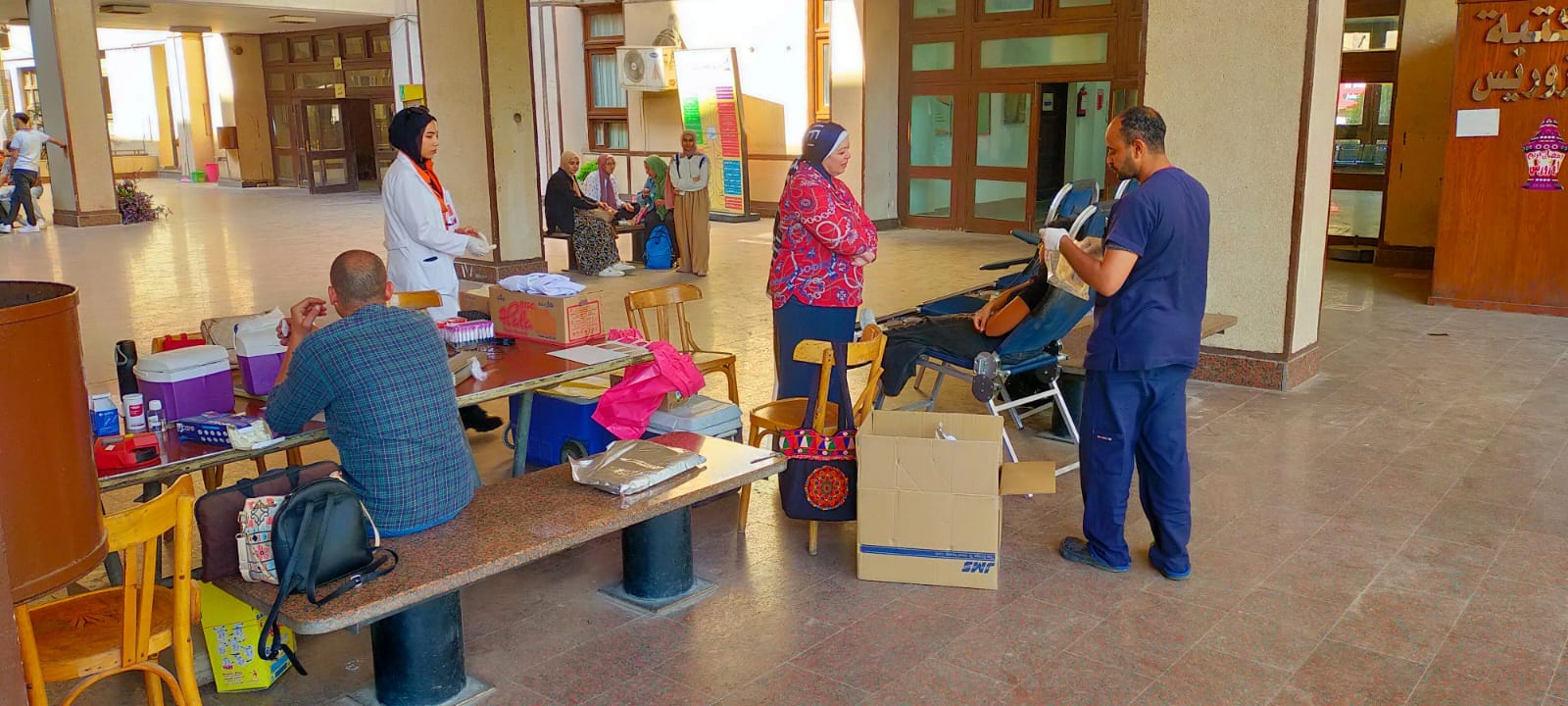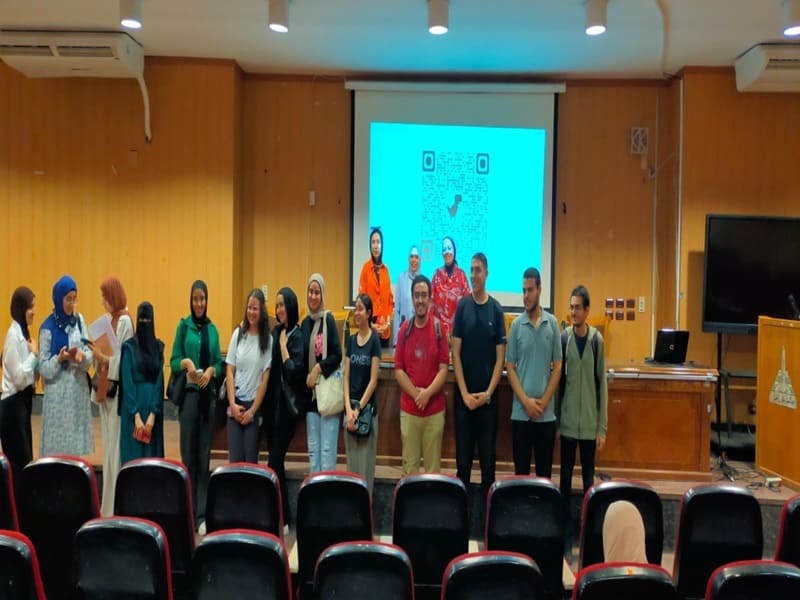The Faculty of Al-Alsun organizes a symposium to raise awareness of the regular voluntary donation program "5 for 1"
The Community Service and Environmental Development Sector at the Faculty of Languages organized an awareness symposium on blood donation, under the patronage of Prof. Mohamed Diaa Zain El-Abedeen, President of the University, Prof. Ghada Farouk, Vice President for Community Service and Environmental Development Affairs, Prof. Salwa Rashad, Dean of the Faculty, and the supervision of Prof. Yomna Safwat, Vice Dean of the Faculty for Community Service and Environmental Development Affairs, in cooperation with the Community Service and Environmental Development Affairs Sector at the Faculty of Medicine, Ain Shams University, under the supervision of Prof. Hala Sweid, Vice Dean of the Faculty.
During her opening speech, Prof. Yomna Safwat, Vice Dean of the Faculty for Community Service and Environmental Development, stressed the importance of recognizing the necessity of donating blood regularly for the donor and his health, as well as to enhance the efficiency of blood banks in hospitals to save the lives of many patients and emergency casualties, stressing that every drop of blood stored in blood banks in public hospitals has a great potential in saving the lives of many patients in general and accident victims in particular.
 |
 |
 |
||
An integrated medical team of doctors, nurses and technicians working in the main blood bank at Ain Shams University Hospitals participated in the events, headed by Dr. Dalia Diaa El-Din Salem, coordinator of the “5 for 1” program. Its members explained during the symposium that the “5 for 1” program aims to allocate five donors for each patient to provide safe blood for children and adults, especially patients with cancer, bone marrow transplantation, anemia and kidney failure.
The seminar discussed misconceptions related to blood donation, and clarified the tests that are performed before donation to ensure the safety of the donor, as well as the accurate tests that are performed to ensure the safety of blood bags before transferring them to the patient.
Information was also provided to students about the conditions for blood donation, the steps for examination before and after donation, and the health advice that must be followed after donation.


.svg)

